NIP's Certificate Program in Psychotherapy Integration for Psychoanalysts & Psychoanalytic Psychotherapists (PIP) is offered to licensed and psychodynamically experienced (minimum 5 years) mental health professionals who want to expand their clinical skills. Candidates learn nonanalytic therapy methods from CBT and DBT and their relation to psychoanalytic therapy. The program emphasizes learning particular therapy skills and their applications in clinical practice, as well as an understanding of the rationales for these methods.
Upon completion of the training, candidates will learn the skills necessary to incorporate CBT and DBT skills into psychodynamic work. It is also expected that the learning will impact their overall clinical thinking and ways of practicing.
The program consists of three didactic courses—(1) Introduction to Psychotherapy Integration, (2) Cognitive-Behavior Therapy for Analytic Therapists, and (3) Dialectical Behavior Therapy for Analytic Therapists—plus Clinical Supervision. Each of the three courses includes 15 class meetings. Classes meet once weekly on Mondays at 1:00 for 1-1/2 hours. On alternate weeks, classes are extended by an additional 45 minutes for clinical supervision. The instructors are all senior clinicians, trained and experienced in both psychoanalysis and their nonanalytic specialty modalities. During the year, there are also two all-day workshops.
PIP is approved by the State of New York Education Department to provide 60 continuing education contact hours for social workers, licensed psychoanalysts, and licensed mental health counselors, as well as by the APA for psychologists.
Those seeking more information or interested in applying can contact the Program Co-Directors, Jill Bresler, PhD (drjbresler@gmail.com) or Kenneth Frank, PhD(Kennethafrank@gmail.com).
Foundations of the Program
The many psychoanalysts who have acknowledged the desirability of having a wide variety of methods available have discovered that specialized trainings are now available to clinicians. However, PIP is unique in that it is a psychoanalytically-based program, taught and supervised by clinicians who are recognized as both analysts and specialists in other approaches. Further, classes and group supervision are shared by like-minded practitioners. Hence, students' most difficult task—integrating new methods into the analytic—is facilitated as nowhere else.Working alongside other clinicians to expand skills and develop a nuanced flexibility is stimulating, supportive and rewarding.
This program has evolved from several empirical truths: First, no single psychotherapy approach is uniformly best for all people all the time; each has benefits and limitations.
Therapeutic action is a multifaceted process and at times a modality or modalities other than an analytic one promotes change more effectively than the analytic method alone. For example, by focusing specifically on enhancing individuals' coping skills, cognitive-behavior therapy, takes advantage of the mutative role of behavior change, which the verbally privileged analytic approach does not emphasize. In choosing CBT and DBT as our focus, we teach methods that are well established, with sound empirical evidence for their efficacy.
A strong therapeutic relationship is a common factor underlying all effective forms of psychotherapy. Because relational psychoanalysis is, in our opinion, the richest, most comprehensive perspective on the therapy relationship, it forms the basis, or foundation modality, into which we integrate other approaches.
Additionally, CBT and other modalities can heighten the experiential features of psychoanalysis and psychotherapy, which is decisively important. The synergistic integration of forms of therapy that can heighten the immediacy of emotional experience contributes to an integrative therapeutic whole greater than any of its individual component modalities.
A Relational Theoretical Approach to Assimilative Integration
Our approach is "assimilative" integration with a relational psychoanalytic baseline. Assimilative integration is a form of theoretical integration that allows psychoanalysts (and others) to maintain their baseline perspective on psychotherapy, while drawing flexibly on the wisdom and methods of other schools in order to enhance the quality of therapeutic benefits.
Theoretical integration rather than technical eclecticism is our objective. Without exercising disciplined creativity in practicing integration, a clinician may apply a poorly reasoned, idiosyncratic, or hit or miss collection of methods.
Continuing Education Credits
The National Institute for the Psychotherapies is recognized by the New York State Education Department's State Board for Social Work as an approved provider of continuing education for licensed social workers #SW-0018.
The National Institute for the Psychotherapies is recognized by the New York State Education Department's State Board for Mental Health Practitioners as an approved provider of continuing education for licensed psychoanalysts #Psyan-0004.
National Institute for the Psychotherapies (NIP) is recognized by the New York State Education Department's State Board for Mental Health Practitioners as an approved provider of continuing education for licensed mental health counselors. #MHC-0059.
The National Institute for the Psychotherapies is approved by the American Psychological Association to offer continuing education credits for psychologists. The National Institute for the Psychotherapies maintains responsibility for this program and its content.
This program is approved for 60 continuing education contact hours.
Curriculum
The 2017-2018 sequence of courses follow:
- Orientation Meeting (Students and Faculty)
- Introduction to Psychotherapy Integration
Instructor: Kenneth Frank, PhD
5 sessions
Before learning specific modalities, we explore the history, basic concepts, and diverse approaches to psychotherapy integration. The course orients students to the philosophy of PIP, assimilative integration, based on empowering relational psychoanalytic therapy through the psychoanalytic use of outside methods. Using alternate modalities to question and inform our analytic assumptions, we reconsider our basic ideas about therapeutic action. We come to understand concepts like therapeutic choice points and common factors. We learn differences between eclecticism and theoretical integration, and formal and seamless integration. Reading and discussing leading analytic integrationists like Bresler, Frank, Gold, Safran, Stricker, and Wachtel, we begin to cultivate our own thinking and ways of approaching psychotherapy integration.
- Cognitive-Behavior Therapy for Analytic Therapists
Instructor: Jill Bresler, PhD
10 sessions
This course provides an understanding of the major CBT models and their relationship to psychoanalytic treatment, teaches specific CBT interventions, and prepares clinicians to use CBT techniques skillfully in psychodynamic work. We devote the majority of our time to learning how to use commonly employed techniques including cognitive restructuring, third-wave techniques such as defusion and the use of mindfulness exercises, graded exposure, homework and relaxation training. Among other issues, the course focuses on the treatment of anxiety phenomena, including generalized anxiety, social anxiety, phobias, panic, obsessional thinking and obsessive rumination. Throughout, emphasis is on developing an ability to determine when and how CBT skills may be helpfully integrated into practice, and to evaluate the effects of these interventions. Readings will include work by J. Beck; Persons; Hayes, Strosahl and Wilson; Segal, Williams and Teasdale, and Wallin.
- Dialectical Behavior Therapy for Analytic Therapists
Instructor: Lisa Lyons, PhD
10 sessions
In this course we learn basic elements of DBT. We focus on the integration of DBT into psychodynamic treatment for a broad range of difficulties, including the self-injuring or suicidal patient for whom DBT was originally designed, as well as anxiety, substance abuse, and difficulties with impulse control. Topics include DBT self-regulation skills, how to work with mindfulness, and how to incorporate ideas from Buddhism and Dialectical philosophy – all essential elements of DBT. Readings include the basic DBT texts and critiques of DBT. We will consider the ways the theory and practice of DBT overlap with and complement Relational thinking. Clinical instruction will focus on when and how DBT interventions can most effectively be integrated and how to move seamlessly between DBT and psychodynamic work. Authors to be read include Linehan, Levy and Scott, Shedler, and Lyons.
- Advanced Seminar in Psychotherapy Integration
Instructor: Ken Frank, PhD
5 sessions
Eligibility
Eligible applicants include:
- Clinicians who have completed Institute based psychoanalytic training and are licensed as mental health practitioners in the state(s) in which they practice.
- Clinicians who have completed an equivalent of psychoanalytic training (e.g., have been active in supervision, formal courses, and/or study groups), have five years of clinical experience (mostly supervised) in psychoanalytically-oriented therapy, and are licensed as mental health practitioners in the state(s) in which they practice.
Meeting Day & Time
Classes are held at NIP on Mondays, starting at 1:15. Class ending times vary on alternating weeks between 2:45 and 3:30 in order to accommodate twice-monthly group supervision.
The two annual weekend workshops are offered at NIP on Saturdays.
Personal Psychotherapy
In addition to past or ongoing analytic therapy experiences, candidates are STRONGLY urged to seek out personal therapy in the modalities studied in the program. We believe this is a valuable didactic and professional as well as personal growth opportunity. While very strongly encouraged, it is not required. PIP's administrators can direct you to qualified therapists.
Faculty, Administrators, and Advisory Board
The program's Advisory Board is comprised of scholars from a variety of disciplines who serve as consultants to the program. The Board includes those who have made distinguished contributions to psychotherapy integration, are widely recognized for their expertise in particular non-analytic modalities, and who have specific expertise in other relevant disciplines. Instructors and consultants are selected from both the advisory board and the greater community.
Administration
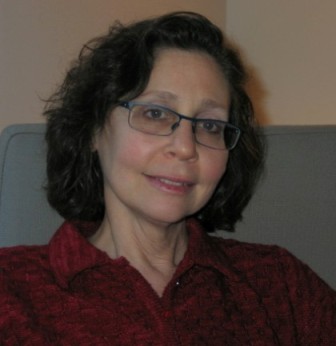
Co-Director: Jill Bresler, PhD, is a past Postdoctoral Fellow of the Institute for Rational-Emotive Behavior Therapy and a graduate of the NYU Postdoctoral Program in Psychoanalysis and Psychotherapy, where she is now on the faculty. Her area of interest is the integration of psychoanalysis, CBT, and the mindfulness-based behavior therapies. She is an editor of Relational Psychoanalysis and Psychotherapy Integration: An Emerging Synthesis (Routledge, 2015). Dr. Bresler teaches, practices, and supervises in New York City.

Co-Director: Kenneth A. Frank, PhD, is Co-Founder and Director of Training of NIP and a former Clinical Professor in Psychiatry at Columbia University College of Physicians and Surgeons. He is on the teaching and supervisory faculties of the Mitchell Center and CPPNJ, among others, and on the Professional Advisory Board of IARPP. He is also the Senior Consulting Editor of the journal Psychoanalytic Perspectives. Dr. Frank has published over 60 articles, chapters, and books, many in the areas of personality change and his specialty, psychotherapy integration, a topic on which he has lectured nationally and internationally. He practices in Englewood, New Jersey, and New York City.
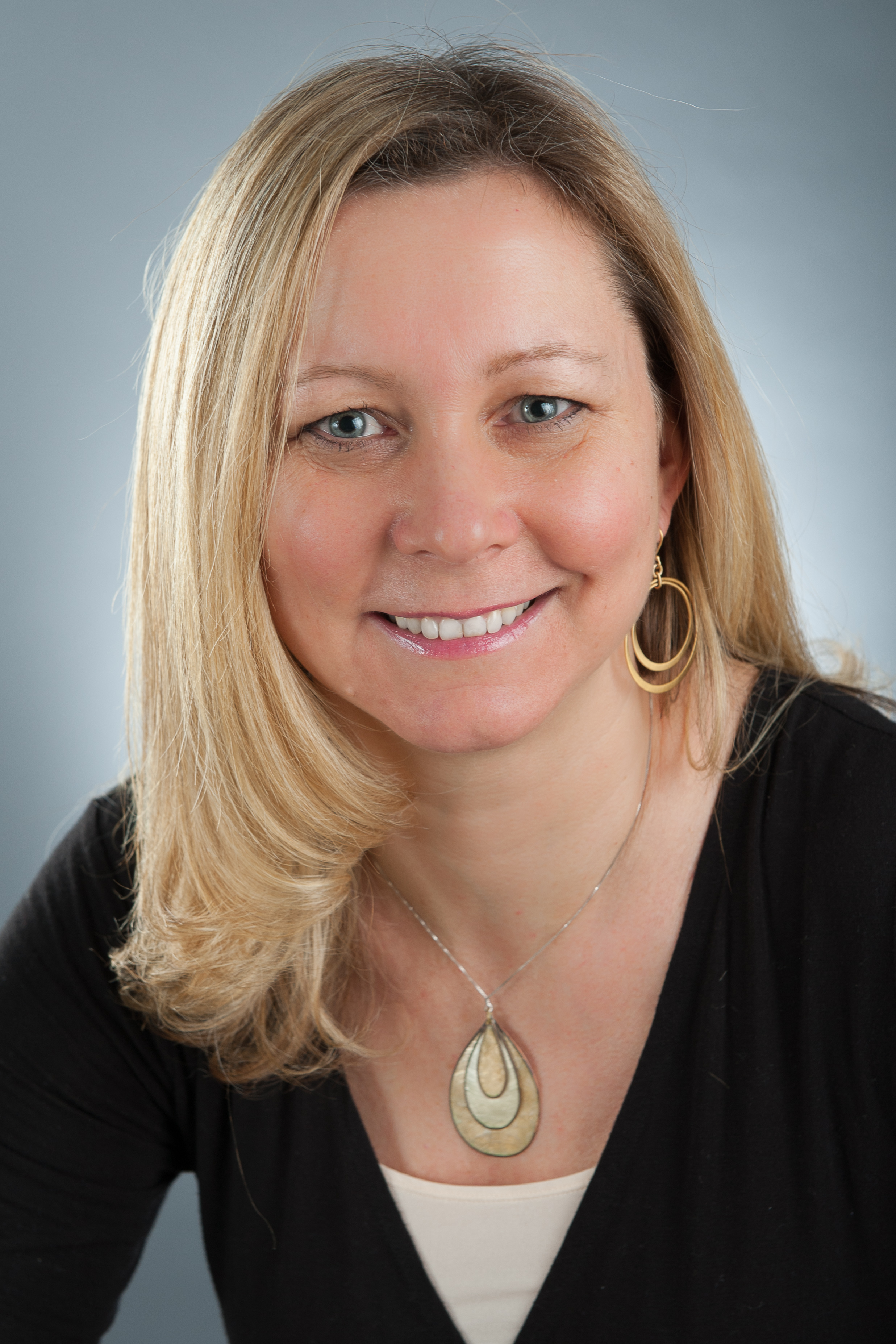 Assistant Director: Anja Behm, LCSW, holds a certificate in Psychoanalysis and Comprehensive Psychotherapy from the National Institute for the Psychotherapies. She is also an Associate in Clinical Psychiatry at Columbia University where her responsibilities include leading groups in Dialectical Behavior Therapy and Cognitive-Behavior Therapy, general psychotherapy, Cognitive Remediation, and Social Cognition Interaction Training. She works in part-time private practice in Manhattan, offering individual and group treatment in Dialectical Behavior Therapy and psychoanalysis. She practices both in English and in German.
Assistant Director: Anja Behm, LCSW, holds a certificate in Psychoanalysis and Comprehensive Psychotherapy from the National Institute for the Psychotherapies. She is also an Associate in Clinical Psychiatry at Columbia University where her responsibilities include leading groups in Dialectical Behavior Therapy and Cognitive-Behavior Therapy, general psychotherapy, Cognitive Remediation, and Social Cognition Interaction Training. She works in part-time private practice in Manhattan, offering individual and group treatment in Dialectical Behavior Therapy and psychoanalysis. She practices both in English and in German.
Advisory Board
Jerold Gold, PhD, ABPP (Clinical), is Professor of Psychology at Adelphi University, where he is also a faculty member and supervisor in the Postgraduate Programs in Psychoanalysis and in Couples Therapy. He was the editor of the Journal of Psychotherapy Integration and is the author of Key Concepts in Psychotherapy Integration (Plenum, 1996), and co-editor, with George Stricker, of the Comprehensive Handbook of Psychotherapy Integration (Plenum, 1993), and of the Casebook of Psychotherapy Integration(APA, 2006). He has written extensively about integrative approaches, particularly the model known as Assimilative Psychodynamic Psychotherapy.
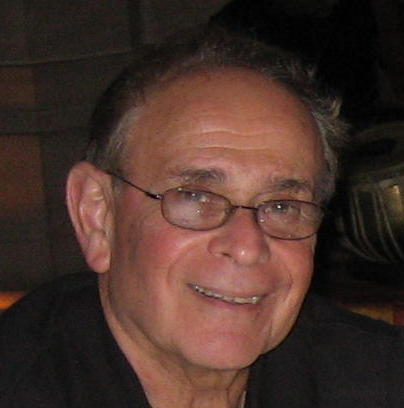 Marvin R. Goldfried, PhD, is a Distinguished Professor of Psychology at Stony Brook University. He is a diplomate in clinical psychology and recipient of numerous awards from the American Psychological Association, and awards from the Association for Advancement of Behavior Therapy (AABT) and the Society for Psychotherapy Research (SPR). He is Past President of SPR, founder of the journal In Session: Psychotherapy in Practice and author of numerous articles and books. Dr. Goldfried is cofounder of the Society for the Exploration of Psychotherapy Integration (SEPI) and founder of AFFIRM: Psychologists Affirming Their Lesbian, Gay, Bisexual & Transgender Family (www.sunysb.edu/affirm).
Marvin R. Goldfried, PhD, is a Distinguished Professor of Psychology at Stony Brook University. He is a diplomate in clinical psychology and recipient of numerous awards from the American Psychological Association, and awards from the Association for Advancement of Behavior Therapy (AABT) and the Society for Psychotherapy Research (SPR). He is Past President of SPR, founder of the journal In Session: Psychotherapy in Practice and author of numerous articles and books. Dr. Goldfried is cofounder of the Society for the Exploration of Psychotherapy Integration (SEPI) and founder of AFFIRM: Psychologists Affirming Their Lesbian, Gay, Bisexual & Transgender Family (www.sunysb.edu/affirm).
 Henry Grayson, PhD, is the Originator, Co-Founder, and Chairman Emeritus of NIP; former associate professor at the City University of New York; radio host of the Mindful Living Show; author of Use Your Body to Heal Your Mind; Mindful Loving; The New Physics of Love; Short Term Approaches to the Psychotherapies; Changing Approaches to the Psychotherapies; and Three Psychotherapies (with CA & G Loew). Having studied, practiced and taught most of the major psychotherapies, he teaches training seminars on his Synergetic Therapy widely across the US and abroad.
Henry Grayson, PhD, is the Originator, Co-Founder, and Chairman Emeritus of NIP; former associate professor at the City University of New York; radio host of the Mindful Living Show; author of Use Your Body to Heal Your Mind; Mindful Loving; The New Physics of Love; Short Term Approaches to the Psychotherapies; Changing Approaches to the Psychotherapies; and Three Psychotherapies (with CA & G Loew). Having studied, practiced and taught most of the major psychotherapies, he teaches training seminars on his Synergetic Therapy widely across the US and abroad.
Lisa S. Lyons, PhD is on the faculties of the Mitchell Center for Relational Studies, ICP, and CPPNJ. She holds a certificate in Psychoanalysis from the NYU Post -doctoral Program in Psychoanalysis and Psychotherapy. She also has been intensively trained in Dialectical Behavior Therapy and was founder and for six years Director of the adult DBT program at Montefiore Medical Center. Dr. Lyons is known for her writing and teaching on the integration of Relational Psychoanalysis and DBT and also teaches and has written on Relational Psychoanalysis, Psychoanalysis and Culture, Trauma, and Dreams. She practices in New York City and Teaneck, New Jersey.
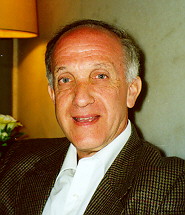 Stanley Messer, PhD, is Dean of the Graduate School of Applied and Professional Psychology at Rutgers University. He is interested in the application of psychodynamic theory and research to the brief and integrative therapies and has contributed to the debate on evidence-based practice. The author or editor of many books, articles, and book chapters on these topics, Dr. Messer is Associate Editor of the online journal Pragmatic Case Studies in Psychotherapy. He maintains a psychotherapy practice in Highland Park, New Jersey.
Stanley Messer, PhD, is Dean of the Graduate School of Applied and Professional Psychology at Rutgers University. He is interested in the application of psychodynamic theory and research to the brief and integrative therapies and has contributed to the debate on evidence-based practice. The author or editor of many books, articles, and book chapters on these topics, Dr. Messer is Associate Editor of the online journal Pragmatic Case Studies in Psychotherapy. He maintains a psychotherapy practice in Highland Park, New Jersey.
 Jeremy D. Safran, PhD, is chair and professor of psychology and former director of clinical training at the New School for Social Research. He is also co-founder and co-chair of the New School Ferenczi Center. He is on faculty at the NYU Postdoctoral Program in Psychotherapy and Psychoanalysis and is a past president of IARPP. He is the author of several books, the most recent of which is Psychoanalysis & Psychoanalytic Therapies.
Jeremy D. Safran, PhD, is chair and professor of psychology and former director of clinical training at the New School for Social Research. He is also co-founder and co-chair of the New School Ferenczi Center. He is on faculty at the NYU Postdoctoral Program in Psychotherapy and Psychoanalysis and is a past president of IARPP. He is the author of several books, the most recent of which is Psychoanalysis & Psychoanalytic Therapies.
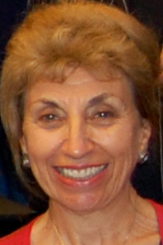 Sandra Shapiro, PhD, is the Director of NIP's Integrative Trauma Program, a member of NIP's Board of Directors, and an Associate Professor Emeritus of the Psychology Department at Queens College, CUNY. She has a special interest in the broad scope of traumatic experience and the evolving approaches to trauma treatment and their integration into a psychoanalytic / psychodynamic and neuroscientific framework. She is an EMDR Institute Facilitator, an EMDRIA (EMDR International Association) approved Consultant, and has studied Sensorimotor Psychotherapy, Somatic Experiencing, Coherence therapy, and other trauma-sensitive modalities. Her practice is located in Manhattan.
Sandra Shapiro, PhD, is the Director of NIP's Integrative Trauma Program, a member of NIP's Board of Directors, and an Associate Professor Emeritus of the Psychology Department at Queens College, CUNY. She has a special interest in the broad scope of traumatic experience and the evolving approaches to trauma treatment and their integration into a psychoanalytic / psychodynamic and neuroscientific framework. She is an EMDR Institute Facilitator, an EMDRIA (EMDR International Association) approved Consultant, and has studied Sensorimotor Psychotherapy, Somatic Experiencing, Coherence therapy, and other trauma-sensitive modalities. Her practice is located in Manhattan.
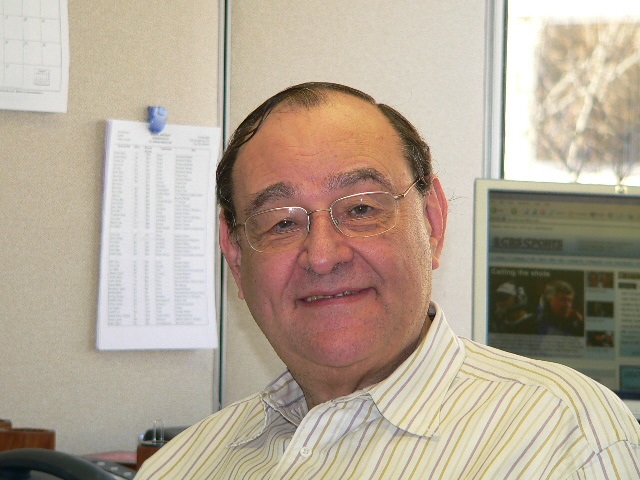 George Stricker, PhD, received his PhD in Clinical Psychology at the University of Rochester in 1960 and an honorary PsyD from the Illinois School of Professional Psychology, Meadows Campus, in 1997. He is Professor of Psychology at Argosy University, Washington DC campus. Prior to that, he was Distinguished Research Professor of Psychology in the Derner Institute, Adelphi University, where he had served as Dean of the Derner Institute for a decade. His most recent books are Psychotherapy Integration, and A Case Book of Psychotherapy Integration, with Jerry Gold, as well as a DVD, Psychotherapy Integration Over Time.
George Stricker, PhD, received his PhD in Clinical Psychology at the University of Rochester in 1960 and an honorary PsyD from the Illinois School of Professional Psychology, Meadows Campus, in 1997. He is Professor of Psychology at Argosy University, Washington DC campus. Prior to that, he was Distinguished Research Professor of Psychology in the Derner Institute, Adelphi University, where he had served as Dean of the Derner Institute for a decade. His most recent books are Psychotherapy Integration, and A Case Book of Psychotherapy Integration, with Jerry Gold, as well as a DVD, Psychotherapy Integration Over Time.
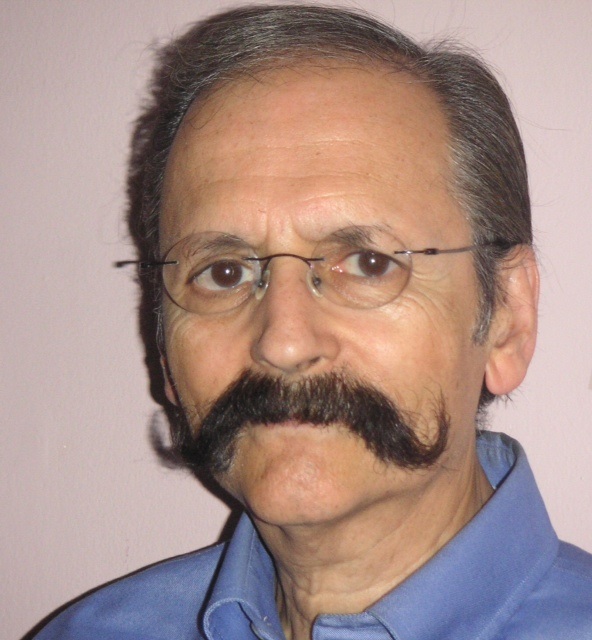 Paul L. Wachtel, PhD, is CUNY Distinguished Professor in the doctoral program in clinical psychology at City College and the CUNY Graduate Center and a faculty member of the NYU Postdoctoral Program in Psychotherapy and Psychoanalysis and the Mitchell Center for Relational Studies. He was a cofounder of the Society for the Exploration of Psychotherapy Integration (SEPI) and was the winner of the 2010 Hans H. Strupp Award for Psychoanalytic Writing, Teaching, and Research, the 2012 Distinguished Psychologist Award by Division 29 (Psychotherapy) of APA and the 2013 Scientific Award by Division 39 (Psychoanalysis) of APA.
Paul L. Wachtel, PhD, is CUNY Distinguished Professor in the doctoral program in clinical psychology at City College and the CUNY Graduate Center and a faculty member of the NYU Postdoctoral Program in Psychotherapy and Psychoanalysis and the Mitchell Center for Relational Studies. He was a cofounder of the Society for the Exploration of Psychotherapy Integration (SEPI) and was the winner of the 2010 Hans H. Strupp Award for Psychoanalytic Writing, Teaching, and Research, the 2012 Distinguished Psychologist Award by Division 29 (Psychotherapy) of APA and the 2013 Scientific Award by Division 39 (Psychoanalysis) of APA.
Tuition & Fees
Tuition for the 2017.2018 academic year is $3,309. This includes all 30 classes, two all-day workshops, and group supervision on alternating weeks. Additional fees include the $75 one-time application fee.
Admissions & Application Process
Download the application form here.
Because PIP has a rolling admissions policy until the class is full, applicants are advised to submit as soon as possible after March 31, 2017. In addition to a completed application form and a $75 application fee, applicants are asked to submit the following supporting materials:
- Copies of all current licenses
- Copies of certificates/diplomas
- Three letters of recommendation from supervisors or senior colleagues who know the applicant's clinical work well
- Additional information or documentation which may serve to strengthen your application
Once all application materials are received, candidates will be asked to participate in admission interviews. Applications will be processed in the order they are received. Interviews will take place in New York City when possible, or conducted via Skype.
For More Information
Please direct all inquiries to Jill Bresler or Kenneth Frank, Co-Directors, at 212.582.1566.
